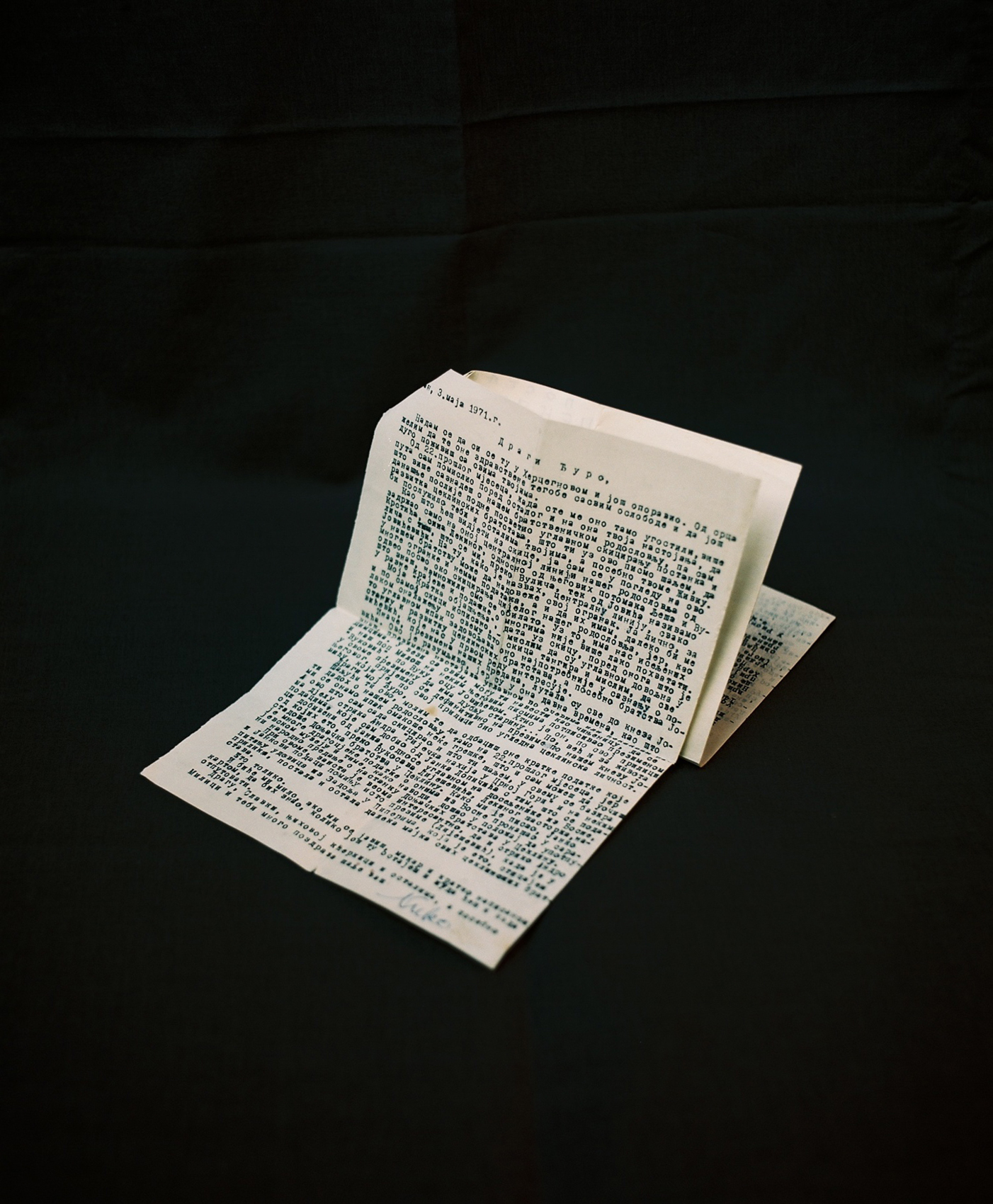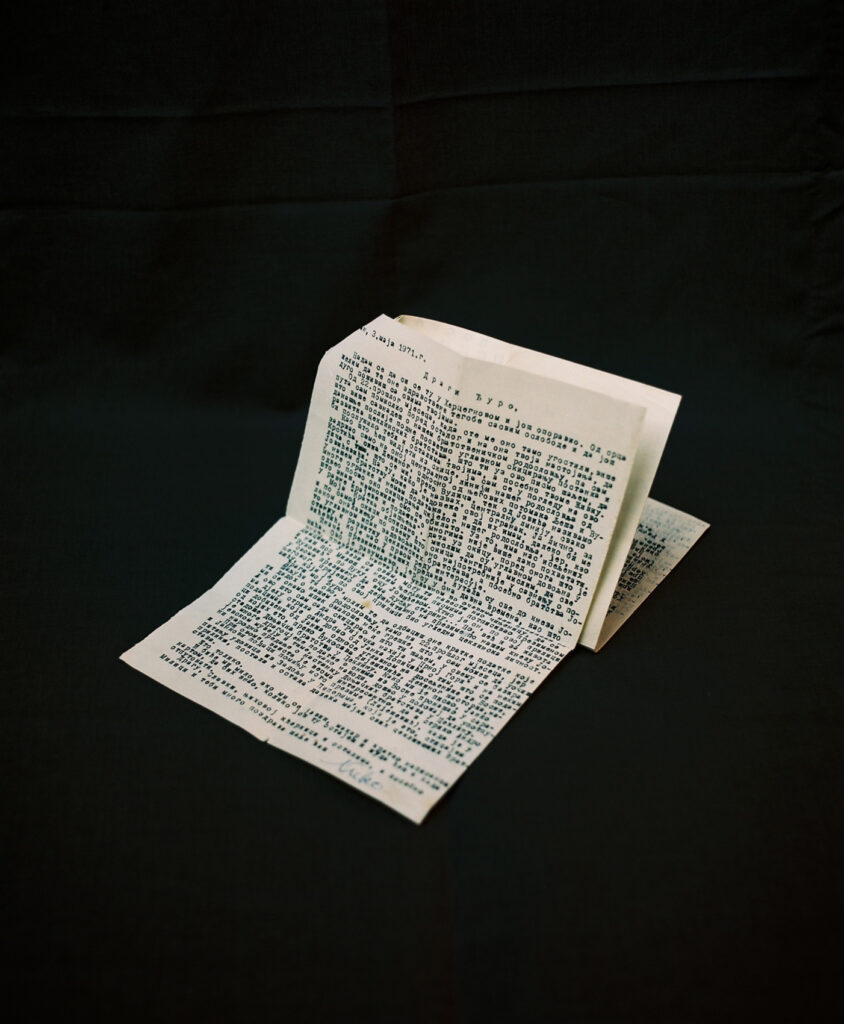
When Marija found a typewriter-written letter, accompanied by a family tree, she knew she came across a testimony that would give her insight into her family history but also a more general story about many families in the Balkans.
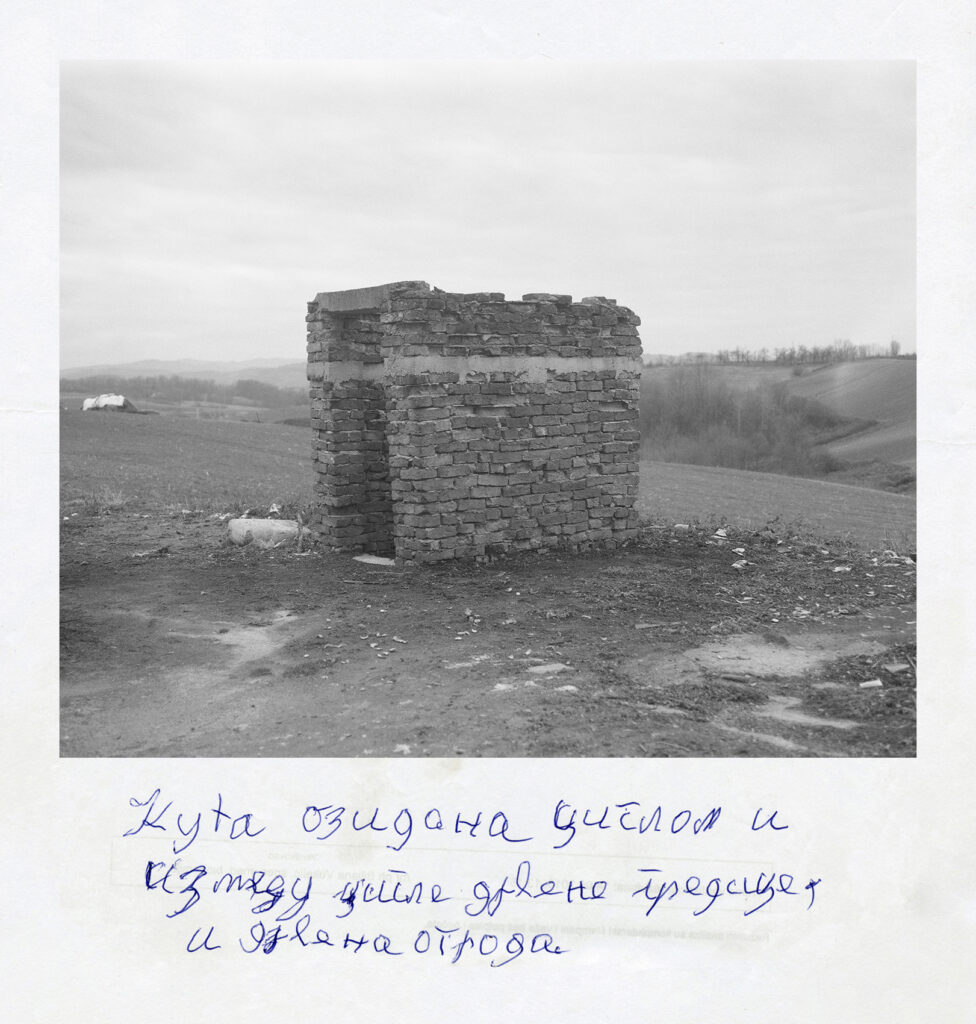
“A house built of brick, and between the brick a wooden beam and a wooden fence”
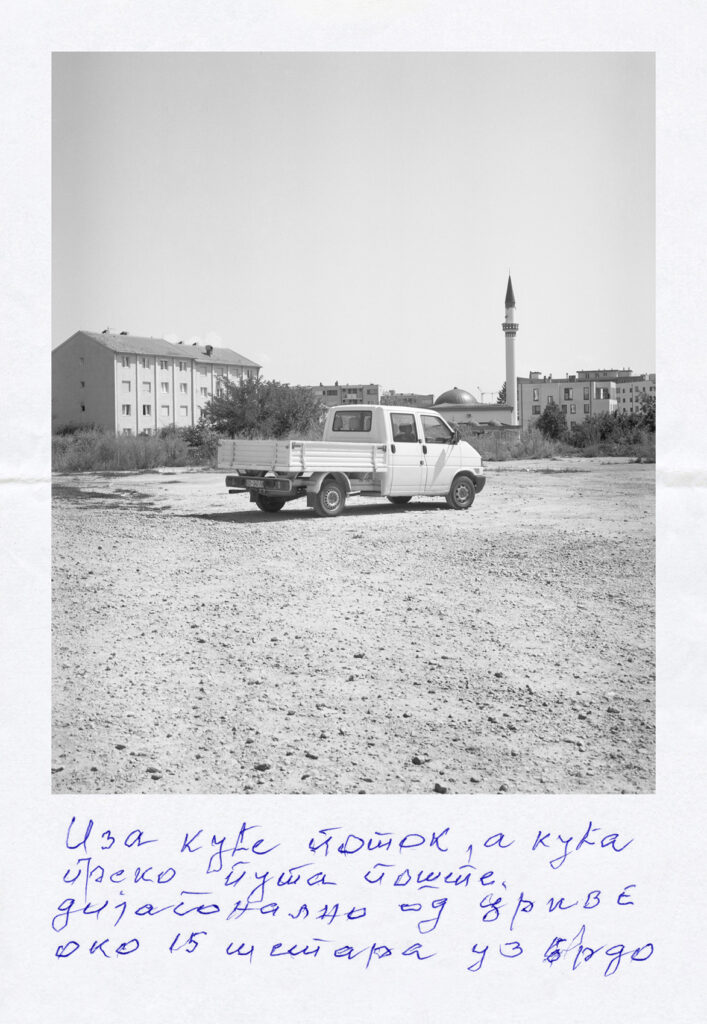
The letter, which she found in her grandmother Desa’s house, talks of the important ancestors of Marija’s maternal family – hailing from Montenegro originally. The letter dating from 1971 was addressed to Marija’s great grandfather Đuro, that is, the father of Desa’s late husband.
The letter was a typical example of a defense of patrilineage: where there was no mention of female ancestors, but only the male heritage in her family.
This drew Marija’s curiosity to want to study further her family history. Her attention centered around a key matriarchal figure – from the 15th generation in the past (known in Serbian as the White Bee of the family) – which is mentioned a few times throughout the document. The letter notes that she was a widow, who had two male children -but unfortunately her name and surname are not known.
“I would say this was a turning point to me, since it seemed like the patriarchal pattern in a strange way refuted itself, right through these mentions of the foremother whose position was asserted as important. In the context of the Balkans where the patrilineal family tree is a common thing, this emphasize of my white bee is very unusual.” – Marija Mandić, winner 2021 VID Grant.
This individual is depicted as the mother of mothers and therefore stands as a representation of the archetypal matriarch of all families. This is the basis of Marija’s project Bela Pčela (White Bee).
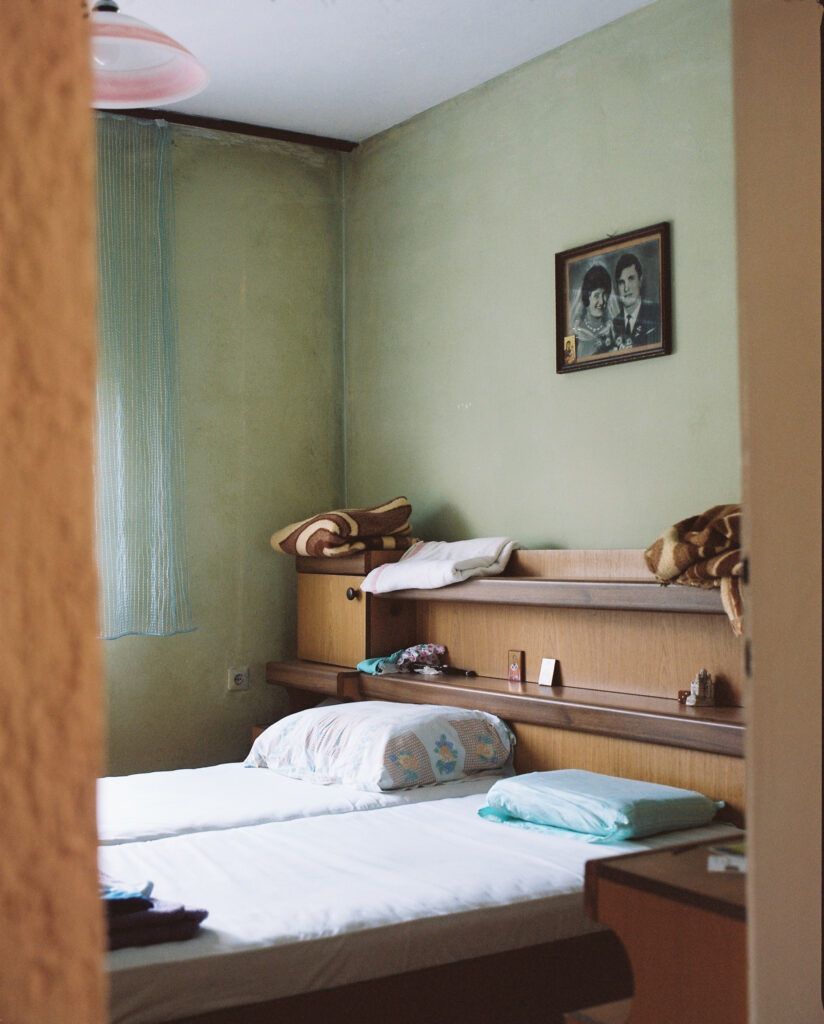
The project uses photography to revive the memory of female ancestors, whereby the narrative of Marija’s family history and memory is reconstructed. Her project debunks the myth of the White Bee and deals with a distant past through both scientific-like and more alternative methods of exploration. Through this approach, Marija will therefore digitally recreate the identity of the White Bee of her ancestry. This matriarchal figure stands as testament to the neglected role of women generally in history. It considers the way how women have usually been omitted from the family narrative, even though they hold a crucial position in it, a reality also confirmed in the letter the is central to this project. Marija’s work therefore attempts to reclaim the position of women, the female voice and highlights the importance and contribution of women within the family context.
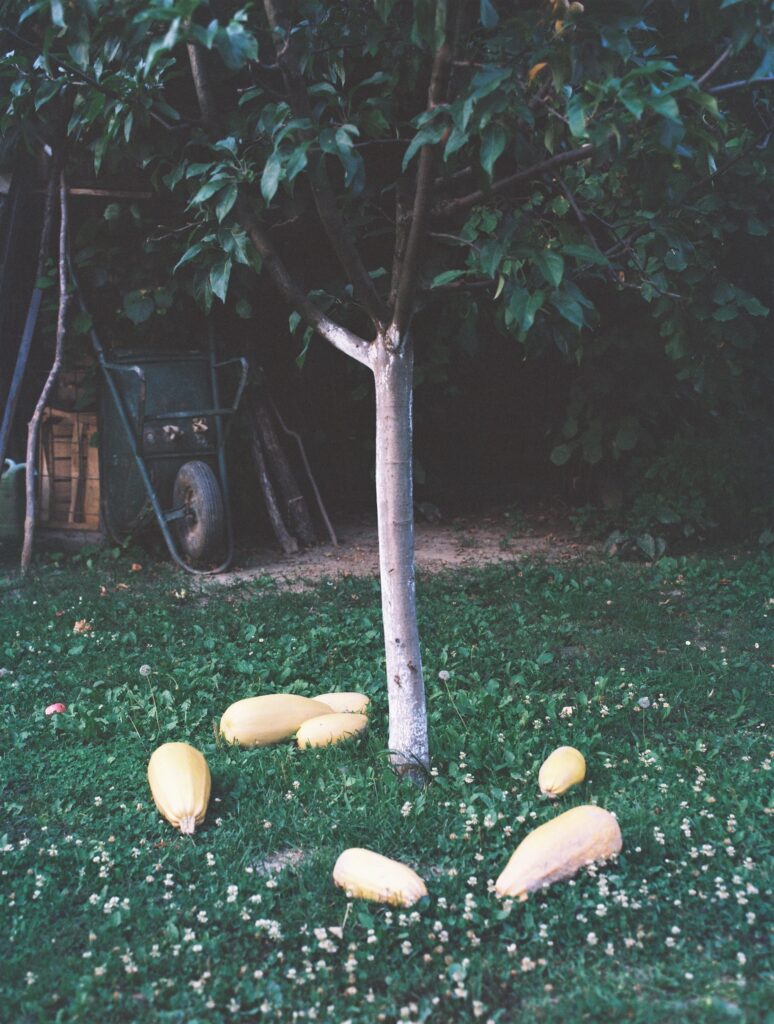
Marija’s project Bela Pčela (White Bee) is a continuation of her previous photography project called July 32, which also deals with her family history and mythology. July 32 is a combination of black and white images, also depicting her family history and mythology, and other important locations relative to her family history from four different regions throughout former Yugoslavia.
“It is important for people from the Balkans to know of this work since it is the story common for many from the region, even though the starting point was my own family. The patrilineal family tree is typical in the Balkans’ patriarchal and male-oriented system. The rare situation of finding an emphasized mention of the foremother of the family, as was the case in mine, led me to recreate my most distant female ancestor’s identity. This spark of her acknowledgment in the letter shed light on questions related to history and memory that in this work I deal with through meta-genealogy and different methods of exploring the past. The aim to create an identity of the woman who stands at the beginning of my family history reflects the neglected position of all women in the traditional form of ancestral tracking.” – Marija Mandić, winner 2021 VID Grant.
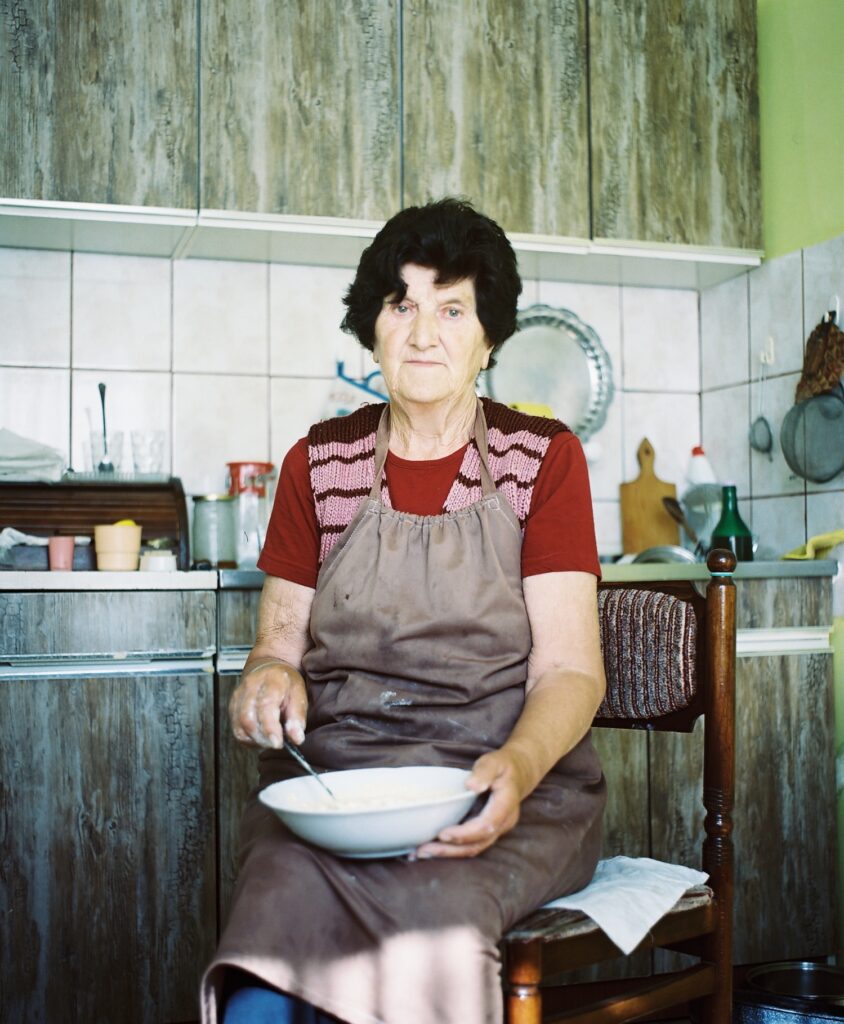
Futog, Serbia, 2019.
Marija’s work demonstrates the omission of women generally within the social and public spaces in the Balkans throughout history, and sadly in some places also today. We are proud to have this work as our winner of the VID Grant and we hope this work will empower women and allies to this cause to speak up against conservatism and patriarchy in the Balkans.

Marija Mandić is a Prague-based artist working with photography, who in her works deals with the questions of genealogy, past, and memory. She has been the holder of Dositeja scholarship assigned by the Fund for Young Talents of the Republic of Serbia, and of the grant for artistic and curatorial projects allowed by UJEP, Jan Evangelista Purkyně University in Ústínad Labem. Marija’s works were shown internationally, and as a student and a lecturer, she has participated in numerous art festivals and workshops. From 2015 to 2019 she worked as a doctoral student lecturer at the Faculty of Art and Design in Ústí nad Labem, the Czech Republic, where she is currently in her final year of PhD studies in Visual Communication.
